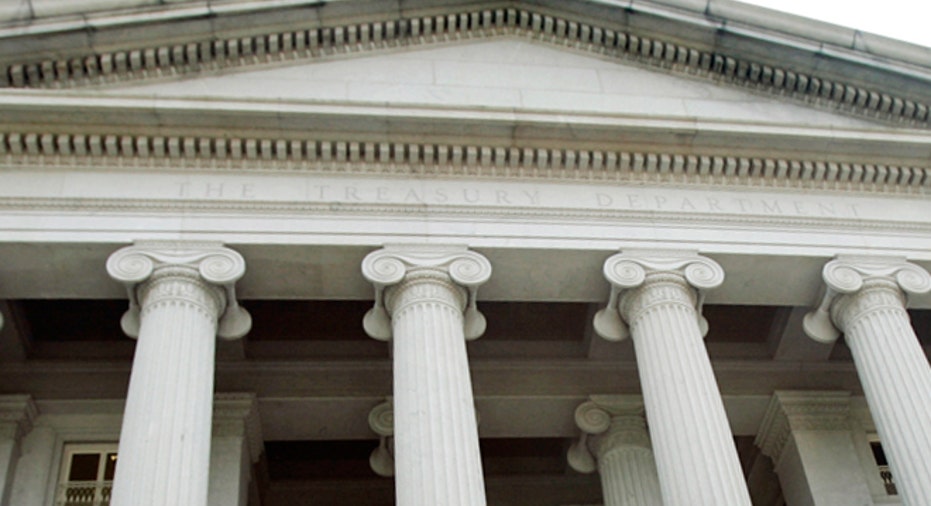U.S. Annual Budget Deficit Falls Near 7-Year Low

The U.S. budget deficit narrowed further in May as revenue continued to rise faster than expenses have over the past year, the Treasury Department reported on Wednesday.
The budget picture has improved this year amid higher tax revenue and stronger economic growth, even though government spending has also increased. Revenue for the fiscal year, which began in October, is running 9% ahead of the year-earlier levels, while government spending is up 6%.
Over the past 12 months, the budget deficit has fallen to $412 billion, down from $460 billion in April and $491 billion a year earlier. That marks the lowest 12-month deficit since August 2008.
The U.S. ran an $82 billion deficit in May, a month in which the government has almost always run a deficit in recent decades. The government collected $212 billion in receipts, up 6% from a year earlier, and spent $295 billion, essentially unchanged after adjusting for calendar differences.
The brighter budget outlook means the deficit could fall below projections made by analysts just a few months ago. The Congressional Budget Office forecast in March that the federal deficit would rise to $486 billion this year, from $485 billion last year.
The improving finances haven't so far altered gridlock in Congress, where Democrats say that Republicans' unwillingness to increase government funding in next year's budget could lead to a government shutdown when the fiscal year ends on Sept. 30.
President Barack Obama has said that spending should rise above the across-the-board caps that Congress agreed to four years ago and that any increases in the defense budget should be matched by increases in other domestic spending.
Republicans in Congress last month approved a budget resolution, which doesn't require presidential approval, to keep in place the curbs, but they added nearly $90 billion in spending via a separate account for war funding that isn't subject to the sequester.
Democrats have criticized the military spending workaround as a gimmick, and the White House has warned that Mr. Obama would veto spending bills currently being offered by Republicans.
Over the past week, Senate Democrats have threatened to block those bills to force Republicans to negotiate with the White House to raise spending levels well ahead of the September funding deadline.
Meanwhile, Congress has yet to raise the federal debt limit. The Treasury has been using emergency measures since mid-March to avoid breaching the ceiling.
The Treasury hasn't yet said how long it might be able to do that, but the CBO estimated in March that those measures should last until October or November.
(By Nick Timiraos)



















